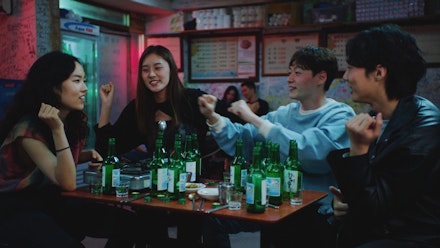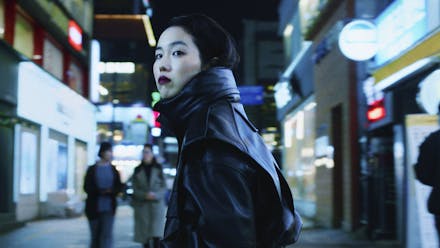Since the 1950s, many children have been adopted internationally from South Korea, especially to the United States. A programme initially started to find parents for orphans of the Korean War, it became a huge operation, with thousands of orphans or children of unwanted pregnancies sent overseas for a better life. Partly based on the testimony of a real-life friend of director Davey Chou, Return To Seoul dramatises the story of one such adoptee: Freddie, played by Ji-Min Park (in an extraordinary acting debut).

Set over the course of nearly a decade’s worth of trips to her birth country, Chou’s elliptical film sees Freddie chaotically grapple with her identity, responding to deep psychological scars with a combination of heavy drinking, sexual openness and — at one point — a spot of arms dealing. Freddie is a fascinating character to behold, especially as the film progresses and the chronological jumps give us a new chapter of her life: she is deeply flawed, difficult to get on with, and has a taste for self-destruction. Being adopted, it seems, has left her with a sense that interpersonal relationships are shallow and weak, not to be trusted. “I could wipe you from my life with a snap of my fingers,” she impetuously tells one hapless boyfriend, in one of her more devastating snubs.
It’s Ji-Min’s staggering debut performance that proves the standout of the show.
Yet despite the heavy subject matter, it’s rarely sentimental or judgmental. There is a sharp sense of humour running throughout, especially in watching Freddie’s endlessly impulsive decision-making; the opening sequence sees her bring together strangers to eat together at a youth hostel, a scenario that will be extremely stressful for any British people watching.
It’s insightful, too, on the identity crisis that comes with being caught between cultures; one character calls her a “trojan horse”, a phrase that feels loaded with meaning in this context. While the time jumps can sometimes feel frustrating, leaving us to fill in the gaps where less indirect storytelling might have helped, Chou’s direction keeps things mesmeric, stylish and crisp. But it’s Ji-Min’s staggering debut performance that proves the standout of the show: primarily a visual artist, this is her first acting role, and she’s a complete natural, summoning a story with a single face-flicker or dance move. It’s her performance that will leave you feeling wistful and heartbroken by the film’s quiet, soulful end.
